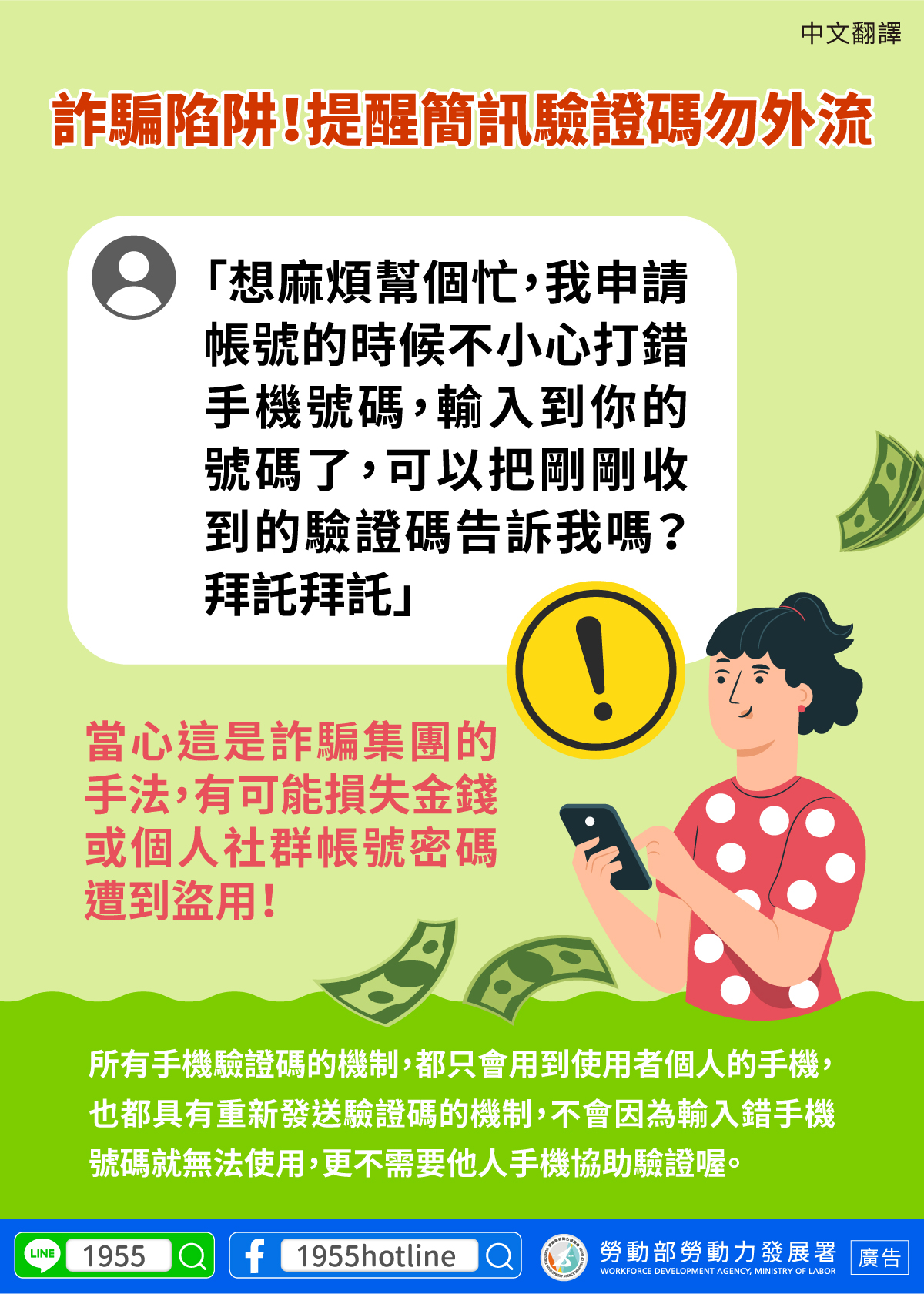Statistics from the National Police Agency, Ministry of the Interior show that "false online auctions," "fake investments," and "removal of installment payments" were the top three scams in Taiwan last year (2022). Many individuals are being tricked into falling for scams without even realizing it because to the development of fraudulent SMS or mobile phone communication software.
The top-ranked " false online auction" typically draws purchasers who are willing to pay less than the market price for the products. The seller disappears once the customer completes the transaction. Scams of this nature frequently occur on "one-page" auction websites or in Facebook groups.
With tiny deposits and big profits, the second-ranked "fake investment" entices people into scams. Fraudulent organizations frequently utilize text messages to get users to click on links and then join investing groups on messaging apps. They spent more money because they thought it was real, which ultimately had no result.
The third-ranked "removal of installment payment" is a scam committed by gangs posing as bank employees or customer support representatives. The strategy involves deceiving the public into believing that repeated installment deductions must be stopped because of an order error in order to support ATM functioning. The property will be fraudulently seized when the ATM procedure is finished.
Read more: 1955 Reminded Migrant Workers in Taiwan not to Commit Identity Theft

Do not leak SMS verification codes, be aware of fraud traps.Photo provided by Workforce Development Agency, Ministry of Labor
Together with the three previously mentioned prevalent fraud techniques, the "mobile phone micropayment" method has long been a fraud trap. The process involves using the phone number and ID number to confirm the identification. Sending back the SMS-notified verification code indicates agreement to pay for this transaction. For instance, the fraudulent gang may pose as a friend and ask for the return of the authentication code that appears in a message after a friend's identity has been stolen on a mobile device or through social networking software. The authorities also urged people not to freely provide the mobile phone's obtained authentication code to others.







